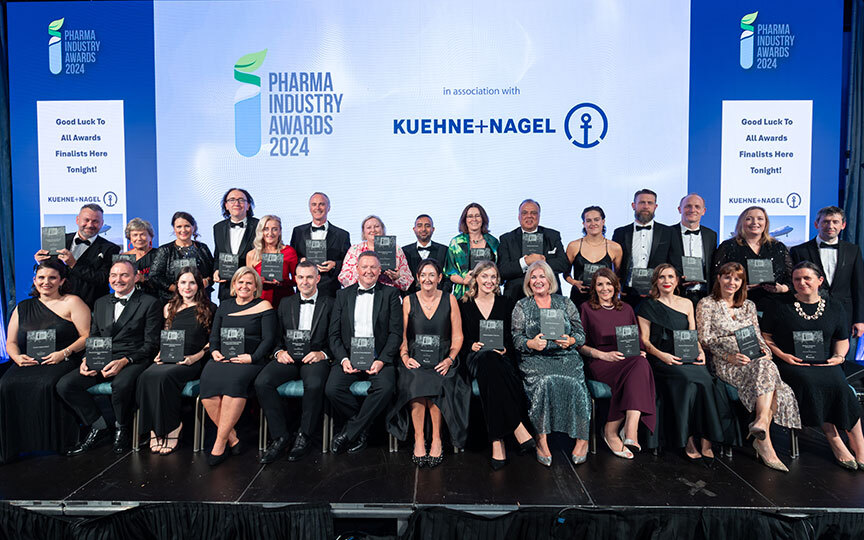Media training needed to counter ‘Big Pharma’ fake news that damages industry’s reputation
By Chris Wheal
February 12, 2024

Learning to do media interviews will increase trust in the UK pharmaceutical industry
Pharmaceutical companies should provide more media training to more staff so they can better communicate the honesty and integrity of the sector.
That’s a key recommendation of a report out in January from the Association of the British Pharmaceutical Industry. The report stems from a conference it held in October last year that brought together experts from academia, industry, the British government, patient organisations and the UK’s National Health Service.
The ABPI Reputation Board Sponsor is Seyda Atadan Memis, Takeda General Manager for UK & Ireland. She picked three highlights of the report that called on the industry to better explain positively what it does to counter the misinformation and conspiracy theories surrounding “Big Pharma”.
Three key points
Memis said the priorities were for the industry to clarify communication strategies about products and organisational purposes. This should include encouraging transparency in successes and failures. The sector needed industry-wide knowledge and familiarity.
She said companies should focus on being trustworthy rather than merely seeking to build trust.
And she said advanced media training should be encouraged to boost confidence in public communication, helping individuals within the industry to better educate the public to understand the science behind their work.
Reputation and trust
The report of the conference, Strengthening reputation and trust in the UK pharmaceutical industry, was published on 22 January 2024. It says: “Discussions during the conference surfaced concerns that bad behaviour by individual companies can tarnish the industry as a whole, and that the widespread perception of ‘Big Pharma’ is that it is motivated purely by profit.”
But the report made clear most pharma companies were “purpose-led businesses, where ‘purpose’ is not a branding statement but the organising principle behind an organisation, and profit is an outcome rather than a driving force”.
The executive summary concludes: “More work needs to be done to make this understood by stakeholders both internally and externally. In tandem, there is potential for greater communication about how medicines are discovered and developed, and about how pharmaceutical companies collaborate successfully with government, the NHS, and other groups such as patient organisations.
“Increasing familiarity with all aspects of the business will also serve to attract a more diverse pool of talent for the future.”
Communication is core
The report says: “Communications excellence is a strategic requirement. Thirty years ago, it may have been a ‘nice to have’, but it is now an essential part of the leadership toolkit.”
In the UK communication about pharmaceuticals is, like everything in the industry, governed by the ABPI Code of Practice. But the conference report warns: “Patient organisation participants observed that working within the code can be ‘soul-destroying’: ‘Do we need six pages of legal gobbledegook just to get £2000?’.”
The report said: “There is also a communication challenge: industry funding is reported externally, but not all inputs and collaboration. Being able to discuss these would have reputational benefits for all stakeholders.”
Re-working the code of practice was a key conclusion. “The Code exists for a reason, but comments during the day suggest that overly risk-averse approaches to compliance can stifle creativity and indeed could even prevent full transparency.”
Scientists and non-scientists
On media training, the report says: “Scientists are often uneasy when asked to talk about topics outside their areas of specialism (policy, for example). Improved media training and continual practice will make them more confident in talking to journalists and more able to control what they are prepared to talk about.”
But it’s not only scientists who need to be media trained and put in front of the cameras. The report said: “There was a sense that people assume that the industry is populated exclusively by scientists and that the only career path available followed a traditional graduate route. However, not only is there a diversity of roles within pharma, but organisations are also crying out for people with different perspectives and from different backgrounds.”
The report asked: “Could pharmaceutical companies modify how they communicate to target groups of young people and inspire them to want to work in the industry?”
Memis said: “While the industry is known to be competent and capable at developing and delivering medicines, it needs to work harder on projecting and demonstrating its character and the core values of honesty, integrity and fairness.”
Would you like to be media trained and put in front of the cameras? Let us know.







.png)